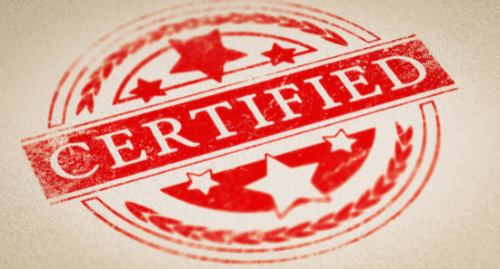A Guide to Finding Authentic Extra Virgin Olive Oil
Extra virgin olive oil (EVOO) is a staple of Mediterranean cuisine and is known worldwide for its health benefits and culinary versatility. However, not all olive oils labeled as “extra virgin” live up to the standard.
With today’s prevalence of counterfeit products and misleading marketing, isolating the authentic from the counterfeit can be challenging. In this guide, we will look into finding genuine extra virgin olive oils and providing you with the knowledge to make an informed choice.
Understanding Extra Virgin Olive Oil
Before starting your quest for authentic EVOO, it’s crucial to know what sets it apart from other olive oils. Extra virgin olive oil is extracted from freshly harvested olives, by mechanical means, without the use of chemicals or added heat, preserving its natural flavors, aroma, and nutritional value. It boasts low acidity levels (below 0.8%) and exhibits superior taste, with characteristics such as fruitiness, bitterness, or pungency.
Key Factors to Consider

1. Quality Standards and Certifications:
Look for certifications that attest to the oil’s authenticity and adherence to strict quality standards. The most renowned certification systems include the International Olive Council (IOC) seal, the European Union Protected Designation of Origin (PDO), and the North American Olive Oil Association (NAOOA) seal. The label should contain an abundance of information and the company’s website should match the information on the label.
2. Harvest Date and Origin:
Opt for oils that specify the harvest date, preferably within the current year, as freshness is paramount to quality. Additionally, knowing the origin of the olives provides insight into the oil’s flavor profile and ensures traceability back to reputable producers. If you can’t locate a harvest date or origin of the olives on the label or the company’s website, avoid buying that product.
3. Packaging:
Authentic EVOO is typically bottled in dark glass containers to shield it from light, which can degrade its quality over time. Avoid clear glass or plastic bottles, as they do not offer protection against light exposure and oxidation. Read this article for more information – Olive Oil in Glass or Plastic Bottles.
4. Taste and Aroma:
When possible, sample the oil before buying to assess its taste and aroma characteristics. Authentic extra virgin olive oils should display a harmonious balance of fruitiness, bitterness, and pungency, with no discernible defects. If it burns your throat or upsets your stomach, don’t buy that product.
Proven Strategies for Finding Authentic EVOO
1. Source Directly from Reputable Producers:
One of the most reliable approaches to ensure authenticity is to purchase directly from trusted producers or certified retailers. This direct connection not only fosters transparency but also allows you to learn about the production methods and cultivation practices employed. Many high-quality extra virgin olive oils have been produced for many generations. Research their websites. The finest EVOOs will usually have detailed stories and pictures of their groves on their websites.
2. Seek Third-Party Testing:
Independent laboratory testing provides an unbiased evaluation of the oil’s quality and adherence to established standards. Look for oils that have undergone rigorous testing by accredited laboratories, with results readily accessible to consumers on their websites. If you can’t find the information that you are looking for on their websites, don’t buy that product.
3. Educate Yourself:
Familiarize yourself with the sensory characteristics of authentic extra virgin olive oils by attending tastings, workshops, or courses hosted by industry experts. Buy and taste test a few high-end olive oils. Developing your palate enables you to discern nuances in flavor and aroma, helping you to make informed purchasing decisions.
4. Embrace Diversity:
Explore oils from various regions and cultivars to appreciate the diversity of flavors and aromas inherent in extra virgin olive oil. Each terroir (environment) imparts unique characteristics to the oil. By sampling quality olive oils from various regions, you can decide which extra virgin olive oil suits your taste and that will help to narrow down your search.
Red Flags to Watch Out For

While navigating the realm of extra virgin olive oil, it’s essential to remain vigilant and recognize common indicators of counterfeit or inferior products:
1. Price Point:
Beware of excessively low prices, as genuine extra virgin olive oil commands a premium price due to the meticulous cultivation, harvesting, and production processes involved. Unrealistically low prices may signify dilution with cheaper oils or substandard quality. This warning includes popular brands that are often found in your local grocery store. Read the labels, not the brand name. If you can’t locate the date of harvest, don’t buy that product.
2. Vague Labeling:
Be wary of labels that lack specific information regarding the oil’s origin, harvest date, or production methods. Transparent labeling instills confidence in the product’s authenticity and allows consumers to make informed choices. Take note of the olive oil brand that you are interested in, then check their website for detailed information. If you don’t feel comfortable after checking for detailed information, don’t buy that product.
3. Lack of Bitterness or Pungency:
Authentic extra virgin olive oil often exhibits pronounced bitterness and pungency, indicative of high levels of antioxidants and beneficial polyphenols. Bitterness varies. Some of the best extra virgin olive oils (from Morocco for instance) have no bitterness and very low acidity, while retaining high polyphenol levels. Other oils lacking these characteristics may have been refined or adulterated to mask defects. The oils that are most likely to be fake are usually very inexpensive and have surprisingly common brand names.
By familiarizing yourself with quality standards, sourcing practices, and sensory evaluation techniques, you can confidently navigate the marketplace and select authentic oils that embody the true essence of olives. Remember, authenticity transcends labels and marketing hype. Try to stick with extra virgin olive oils that are sourced from single estates. The producers are very proud of their products and their labels and websites provide the most important specific details – origin and date of harvest.
If you find it difficult to find trustworthy oils, try Atlas or Morocco Gold as a starting point. Both are single estate oils from Morocco. Both cultivars have been producing high quality oils for many generations. I sincerely hope this article helps you to find your favorite, authentic, EVOO.
Please leave comments, questions or suggestions below.
Tom – Olive Oil Lover

